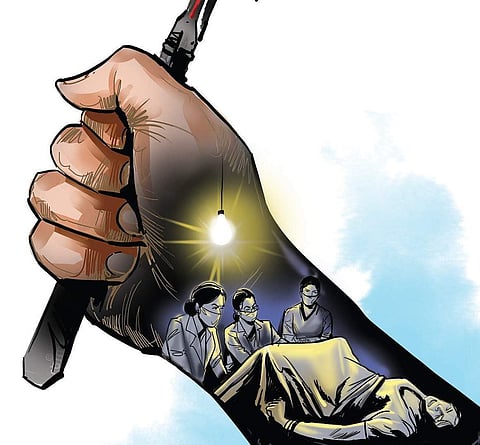

NEW DELHI: An overwhelmingly large number of Indian women, from 63 per cent in Tamil Nadu to 83 per cent in Uttar Pradesh, end their unwanted pregnancies by using over the counter abortion pills bought directly from chemists rather than going to doctors.
According to the largest abortion study in India since 2002, the midpoint abortion rate per 1,000 women aged 15-49, is the lowest in Tamil Nadu at 32.8 and the highest in Assam at 66.2.
The study titled ‘Abortion and unintended pregnancy in six Indian states: Findings and implications for policies and programs’, has been prepared by researchers at Guttmacher Institute, New York, International Institute of Population Sciences, Mumbai and Population Council, Delhi.
The study that focuses on one state in every region was conducted in Assam, Bihar, Uttar Pradesh, Gujarat, Madhya Pradesh and Tamil Nadu.
The analysis also highlights that all the recent reports on abortion in the country, including the National Family Health Surveys, have largely underreported the problem of unsafe termination of pregnancies.
“This study fills a significant evidence gap on abortions in India as representative information on abortion incidence and access to abortion services in the country has been scarce,” said Susheela Singh, vice-president of the Guttmacher Institute and lead researcher.
“There has not been a large-scale study of this size since 2002. In addition, the health care and policy context related to abortion has changed a lot since 2002; for example, use of Medical Methods of Abortion through drugs has increased.”
Passage of the Medical Termination of Pregnancy Act in 1971 legalised abortion up to 20 weeks’ gestation when it is necessary to save a woman’s life or protect her physical or mental health, and in cases of economic or social necessity, rape, contraceptive failure among married couples and fetal anomaly.
It also legalised terminations beyond 20 weeks in cases of life endangerment.
The Act specified that abortion services must be carried out by qualified doctors but access to legal abortion was expanded by policy changes in 2002 and 2003 that approved the use of Medical Methods of Abortion (MMA) for terminating pregnancies up to seven weeks’ gestation.
The study, while highlighting that a majority of abortions take place outside health centres, doesn’t reveal whether they are carried out within the stipulated window.
Singh said while there were notable differences in the findings for the six states, two major findings cut across states, the first being, that in all six states, only a small proportion of abortions occur in health care facilities.
“And among facility-based abortions in five of the six states, Assam being the exception, a minority occur in the public sector, which is the main source of health care for rural and poor women.”
The second is that the majority of abortions were achieved using MMA and were not in health facilities.
“MMA is safe and effective when administered properly, but when it is provided outside of the formal health care sector, the quality of instructions and know how of medications is often low,” he said.